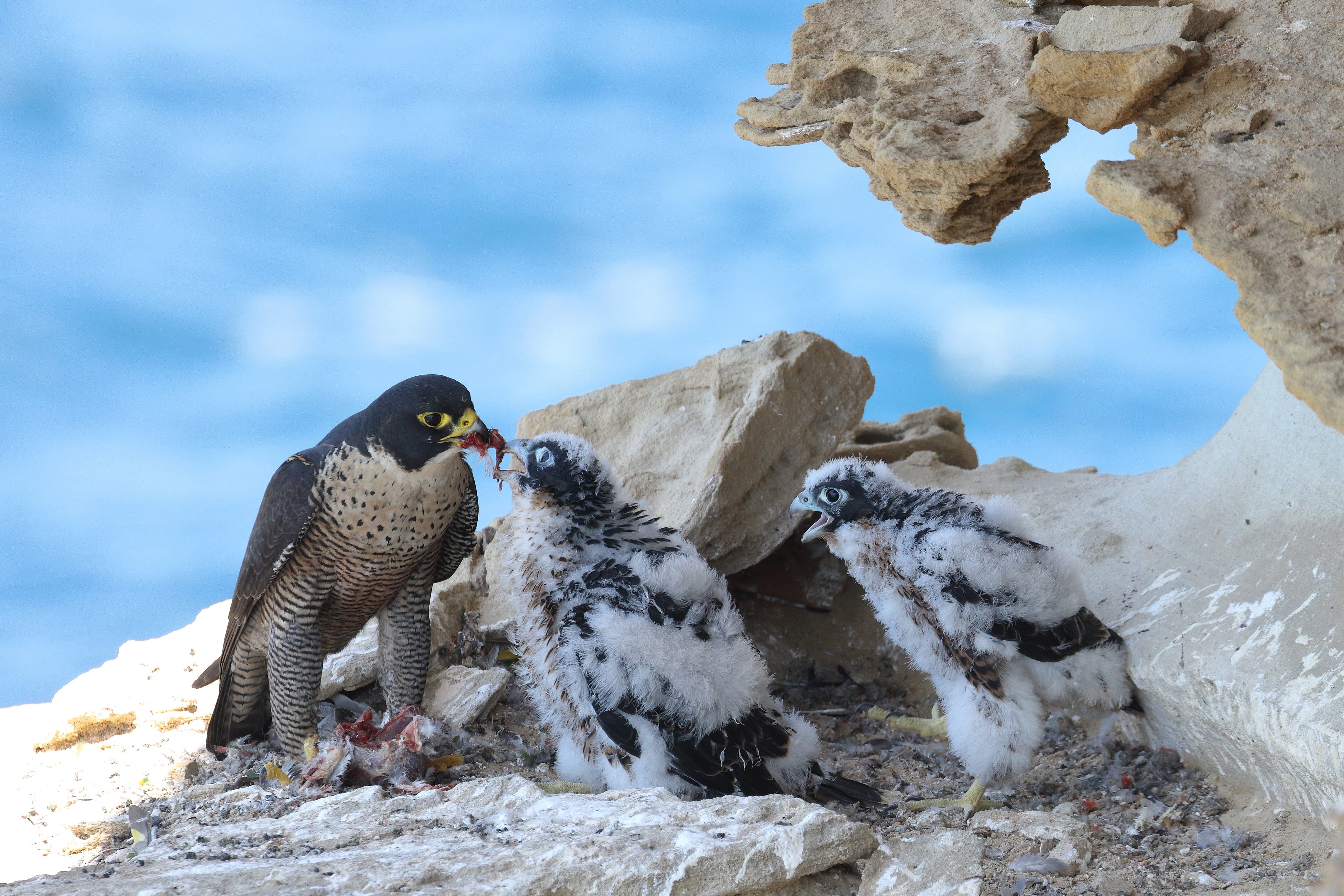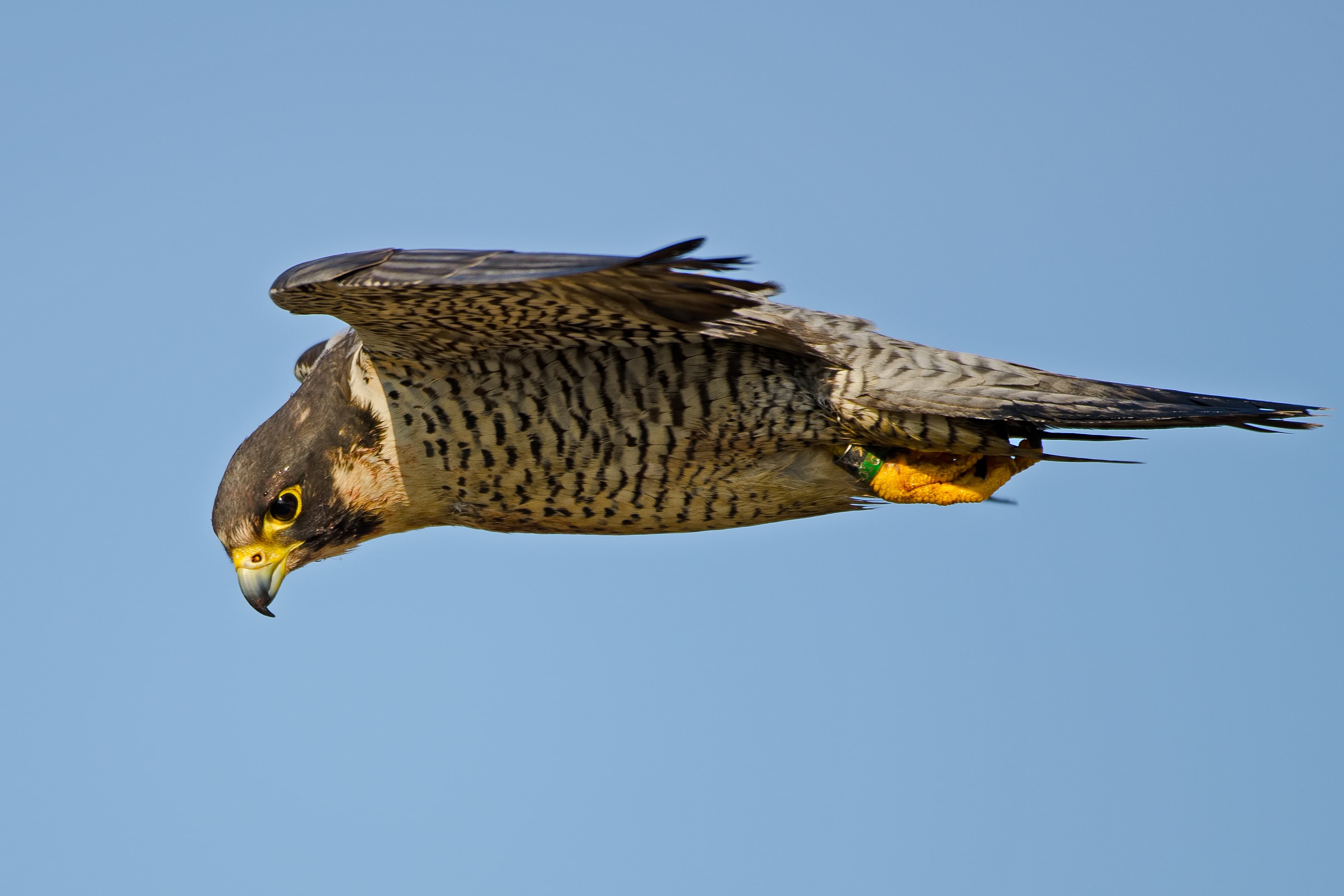In 2008, a nest box equipped with cameras was installed in the tower of Halle's basilica. Since 2013, no fewer than 28 young peregrine falcons have first spread their wings here.
Peregrine family roles
Peregrine falcons usually lay three to four eggs, occasionally five. They are usually laid at two-day intervals and the female does not start incubating until the third egg is laid. Incubation itself takes about 32 days.
Each of the new peregrine parents has their own responsibilities. The female guards the chicks and keeps them warm, while the male heads out to provide the necessary food. When the chicks are around three weeks old and start getting hungrier, the female goes out hunting too. At this point, both parents start feeding the young peregrine chicks.
Fastest bird of prey in the world
The peregrine falcon is one of the largest falcon species and is known for its spectacular hunting technique. It grabs its prey in full diving flight, reaching speeds of up to 350 km/h within seconds.
After hatching, it takes another six weeks or so before the young falcons take their first clumsy flight. They stay with their parents for about two months, learning hunting techniques in the meantime.
Did you know that peregrine falcons prefer to hunt at night? Over the years, they have developed a successful hunting method where they catch transiting birds or bats flying past the floodlights of illuminated tall structures.
Halle's peregrine falcons
Want to see more of the Halle's peregrine falcons? Then be sure to keep an eye on our YouTube page. We post regular updates during the breeding season.
Did you know that three peregrine falcon chicks were born in the Basilica in 2022? Watch footage of their first weeks here.



